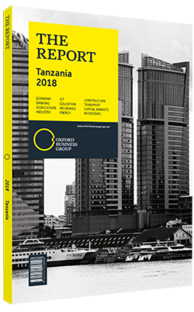Benno Ndulu, Former Governor, Bank of Tanzania (BoT): Interview

Interview: Benno Ndulu, Former Governor, Bank of Tanzania (BoT)
What policy reforms will keep inflation within the target band for the next 12 months?
BENNO NDULU: Within the medium term, we expect inflation to stay in our target range of 5%, which is currently below the advisory threshold. However, core inflation, which is adjusted for the movement of food and fuel prices, has averaged 2-3% and is expected to stay below 5%. The reason the BoT excludes these specifically is because they are influenced by exogenous factors beyond our control. The overall targets in place are based on the protocols of the East African Monetary Union to not exceed 8%. In terms of headline inflation, so far in 2017 we have averaged about 5.3%.
More recently, there has been a bit of pressure from crop prices, which is a regional phenomenon. We had sufficient rains this year, and therefore good production, causing overall food prices to decrease. Fortunately, southern Africa also received favourable weather, so we do not expect pressure from Zambia, Malawi and the Democratic Republic of the Congo as there is plenty of agricultural production in those areas. We anticipate some pressure from the north; however, we believe that we should stay the course.
How would you characterise the most significant liquidity concerns in the banking sector?
NDULU: Amazingly, growth in monetary aggregates and credit has slowed to unusually low levels for Tanzania – from 12-15% to 3-5%. This is not an isolated incident. It is happening in Kenya, Uganda and Rwanda. In turn, we have all been looking at what variables we have in common, despite the differing policies among our central banks. One of the reasons for the liquidity squeeze is the inability of regional governments to finance their budgets using foreign money and debt. Grants and both concessional and non-concessional loans have decreased, causing liquidity-enhancing flows to dry up. What used to be a common source of funds has been reduced significantly. As a result, we find ourselves in a strange situation, as we are trying to inject liquidity without using international financing. This does not mean the government is necessarily spending less, but that it has switched to local sources and is borrowing domestically. You withdraw liquidity when collecting revenue and give it back when spending. It does not change the total amount of liquidity in the system per se. There always have to be other new sources.
What are the biggest factors behind the increase in non-performing loans (NPLs), and how can this figure be reduced?
NDULU: NPLs increased partly due to economic shocks. During the 2008 global financial crisis, when we saw the near collapse of credit, we found it necessary to restructure credit in order to help banks ride out the global economic situation. More recently, commodity price upsets and major changes to the way business is done have caused turbulence in Tanzania. Previously, people had easy access to credit, but now they need to find other ways to meet their financial obligations. There is also a statistical reason for the rise of the NPL ratio. When the stock of credit increases at a slower pace than the stock of NPLs, the NPL ratio goes up.
Ultimately, we are taking measures with regards to NPLs as well. First, we have a medium-term target of 5%. Banks that exceed this must submit a strategy as to how they will get within the threshold. There are many more banks below 5% than above, and it is mainly smaller banks that are exceeding the 5% NPL rate. We have also pushed the use of better credit rating agencies. Credit bureaus are fairly new, and hopefully this will provide better screening for loans.
President John Magufuli had a conversation with the Tanzania National Business Council on May 6, 2017. One of the issues raised by the private sector was whether there was the possibility of credit restructuring for businesses in debt or under stress, and to give more time to businesses going through shocks to reorganise.
You have reached the limit of premium articles you can view for free.
Choose from the options below to purchase print or digital editions of our Reports. You can also purchase a website subscription giving you unlimited access to all of our Reports online for 12 months.
If you have already purchased this Report or have a website subscription, please login to continue.

